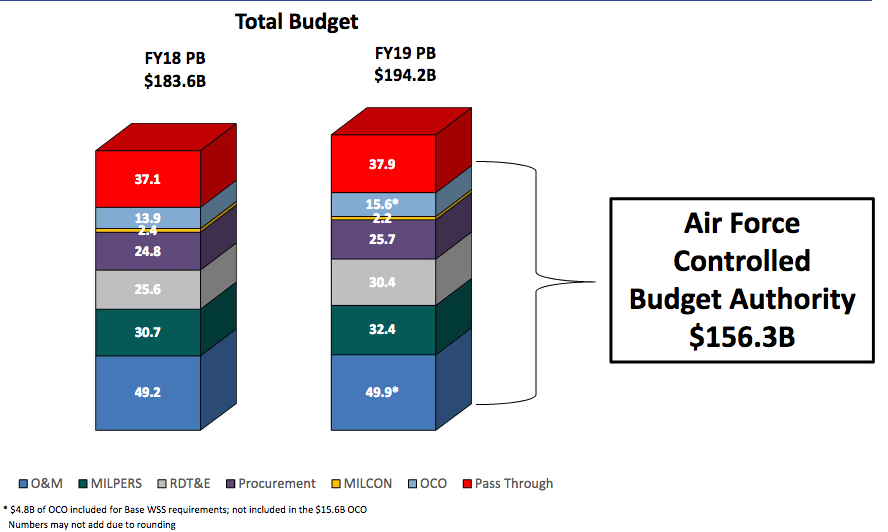
The Air Force's Fiscal 2019 budget request includes $156.3 billion in its "blue budget," or the part of the budget the Air Force actually controls, as well as $37.9 billion of "pass-through" funds, which it cannot alter or control. Graphic from USAF FY19 budget rollout brief.
The Senate Armed Services Committee has proposed killing “pass-through” funding in the annual Air Force budget, the mechanism that includes, as a portion of the service’s budget, funds for other Defense Department functions.
The committee proposal is contained in its version of defense authorization legislation, introduced Tuesday after it was approved by the full committee last month; the House has already passed its version of the bill.
Under the Senate Armed Services proposal, starting with fiscal year 2020, funds for Air Force pass-through items are to be “requested in the Defense-wide budget of the Department of Defense rather than the budget of the Air Force.”
The Air Force’s total Fiscal 2019 budget request was for $194.2 billion, but the service only has budget authority for $156.3 billion of that. The remaining $37.9 billion is “pass-through” funds, overwhich USAF has no control, according to budget documents.
“The committee believes that the current Air Force pass-through budgeting process provides a misleading picture of the Air Force’s actual investment budget,” the panel said.
As reported in, “The Air Force’s Budget Black Hole,” in the June 2016 issue of Air Force Magazine, the funds in this pass-through portion of the budget go to classified accounts, including the Defense Health Program, special operations, and the National Intelligence Program, according to a 2013 Rand report.
None of the other armed services has such a feature in its budget, which makes the Air Force budget look larger than it actually is.
“Really, it’s one of these boring, inside-Washington budget things that needs to be fixed, but no one else cares or even knows about it,” Todd Harrison, director of defense budget analysis at the Center for Strategic and International Studies, told Air Force Magazine at the time.